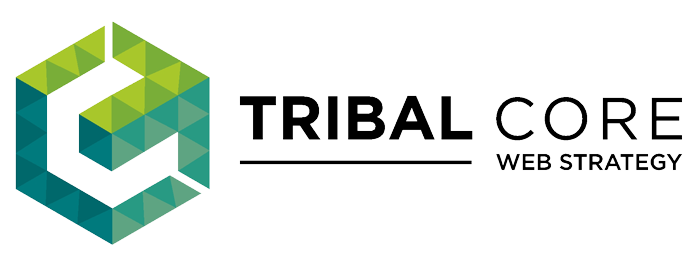or “Why You’re Not #1 in Google for mortgage“

That basic understanding of what is called Search Engine Optimization (SEO) is often simplified to the following:
I heard that I need to put keywords on a page in order to show up on the first page of Google for {insert a single massively competitive word here, like mortgage, pilates, dentists or autism}.
Here’s why the over-simplification doesn’t translate to the expected results.
- The target keyword phrases are overly broad
- The website doesn’t have many incoming links
- There is little relevant content on the page
- There is no long tail of content
- The website is on a young domain
The target keyword phrases are overly broad
The broader your target keywords are, the more competitive they will naturally be. Get a sense of who the competition might be for these increasingly targeted searches:
- workout
- workout clubs
- los angeles workout clubs
- 24 hour mid-wilshire workout clubs
As you narrow your target, something else interesting happens: the person that visits your site finds what you offer to be increasingly relevant, and is more likely to take an action, such as signing up for a newsletter or making a purchase.
Making the assumption that you can compete at the highest, broadest levels will cost you money and produce an endless source of frustration. Competing for very targeted keywords is attainable for any business and contributes to a web marketing foundation on which you continue to build over time.
Your homepage is (almost) always going to carry more weight than your other pages, and the first words in your meta title will be your strongest. So if you or someone else optimizes your home page for your primary target keyword phrase, and you aren’t competitive for it (i.e. in the top 10 in the google search for that target keyword phrase), consider getting more targeted and keep reading below about incoming links.
The website doesn’t have many incoming links
Incoming links (or Inlinks, where another website links to your website) are extremely important for this reason: in order to get a lot of incoming links, you need to have good content that people find valuable. When websites link to your content, particularly large high-traffic websites, it conveys that you are an authority on your topics and worth paying attention to.
The flip side is this: if no one links to you, why should Google care?
Run this test:
- search on google for one of the big, popular words you think you should rank well for, like shoes or car repair.
- note the URL of the first result
- go to Yahoo Site Explorer (deprecated), and enter your website’s URL
- click “Inlinks” “Except from this domain” to “Entire Site”
- note the number of Inlinks
- now do the same thing for that #1 result in google
If you aren’t already competitive for that term you tried, I would bet that the Inlinks of the #1 result URL are a factor of at least 10 if not 100 greater than your site.
Now try the same test on a more granular “keyword phrase” (two or more words) that more accurately describes your business. Going local is even better – santa monica dentist, ventura childcare, santa barbara web marketing agency.
The #1 result, if its not yet you, should be much more in your league. The exceptions are when the large database-driven sites such as Yahoo or Travelocity clog the top of the results, but that’s another post, another day, and you should still have a shot at the first page of results.
So the takeaway is that no matter what optimization you do to your website, you have to build incoming links to your website by creating great content, sharing it on the social networks, listing your site in directories and resource guides and using your URL whenever you promote your business.
There’s little relevant content on the page
Optimization is putting the content of a page in better context. You can not optimize a page for 50 different keywords and expect to be competitive.
I find that each page should be optimized for two or three keyword phrases which directly correlate to the content on the page. Your page on “custom blue vinyl widgets” could be optimized for blue vinyl widgets, custom widgets and vinyl widgets by color.
Attempting to “sneak in” or “stuff” keywords isn’t going to fool Google – they have dealt with people trying to game the system for over ten years.
The page of content itself should have 2-4 paragraphs of well-written text that contain the keyword phrases and/or variations of them. One critique of online stores is that there often isn’t enough descriptive text for each product, therefore the products don’t rank as well as they could for targeted searches.
An addendum to this point: websites built in Flash, with very little exception, have poor search engine positioning. Any small business owner interested in search engine traffic should avoid contracting for a Flash website where the majority of the content isn’t in HTML-style pages (I say HTML-style, because database driven websites, where files are .php, .asp, .cfm, etc. can be quite effective in search engine optimization).
There is no long tail of content
So how do you then increase your visibility for many different keyword searches? You continue to create good content for your website. As you add pages to your site, it creates a “long tail”, where traffic trickles in to all of your pages, creating an increasing amount of overall traffic.
A blog is a great way to do this – creating two new blog posts a week focused on some keyword phrases that your site isn’t well optimized for will help build your overall traffic. Consider how people use your products and services – the above widget vendor might consider writing a blog post entitled “How To Clean Blue Vinyl Widgets.”
Other websites and blogs may find this valuable and link to it, helping to establish the widget vendor as an authority on blue vinyl widgets and how to clean them. That authority is reflected in search engine results and the perception of the company in the eyes of its audience.
Note that the blog’s domain needs to be the same as yours to have the full search engine impact you are looking for. In other words, tribalcore.com/blog is more impactful than if we were to have a blog at tribalcore.blogspot.com.
The website is on a young domain
The search engine optimization stool has three legs: on-page optimization, incoming links and domain longevity.
By domain longevity, we mean: how long has there been a consistently accessible website at that domain? Check your domain or your competitors at The Wayback Machine.
The first website at www.tribalcore.com was put up in 2003, and has gone through four major revisions since then, the most recent being this month.
So even though the content has changed, the domain has had content up consistently for seven years. That contributes significantly to our search engine presence for the various keyword phrases we are optimized for.
An assumption that clients make is that search engine optimization has an immediate “silver bullet” impact even on the newest of sites. Quite the contrary, where SEO really shines is on an older domain with great content. Having a site up at least six months if not a year is about the threshold for contributing to search engine results.
Summary
A keyword strategy includes researching keyword phrases, creating great content around those keywords, and optimizing your pages accordingly. And that’s a solid step forward and a good piece of the puzzle.
As a small business owner, keep in mind that you also need plenty of incoming links, a commitment to produce content on a regular basis and the patience required for new websites without domain longevity to find their legs.
Your next step is to get your home page optimized for your target keyword phrase, see how you rank, do some incoming link research, and read through this article again to see what you’re not doing as well as you should be.

Comments
For some additional reading on this subject, try Mark Nunney’s article on WordTracker titled The long tail of keyword research (and why single keywords are for losers)
Thank you Tyler, this was helpful!
Kris